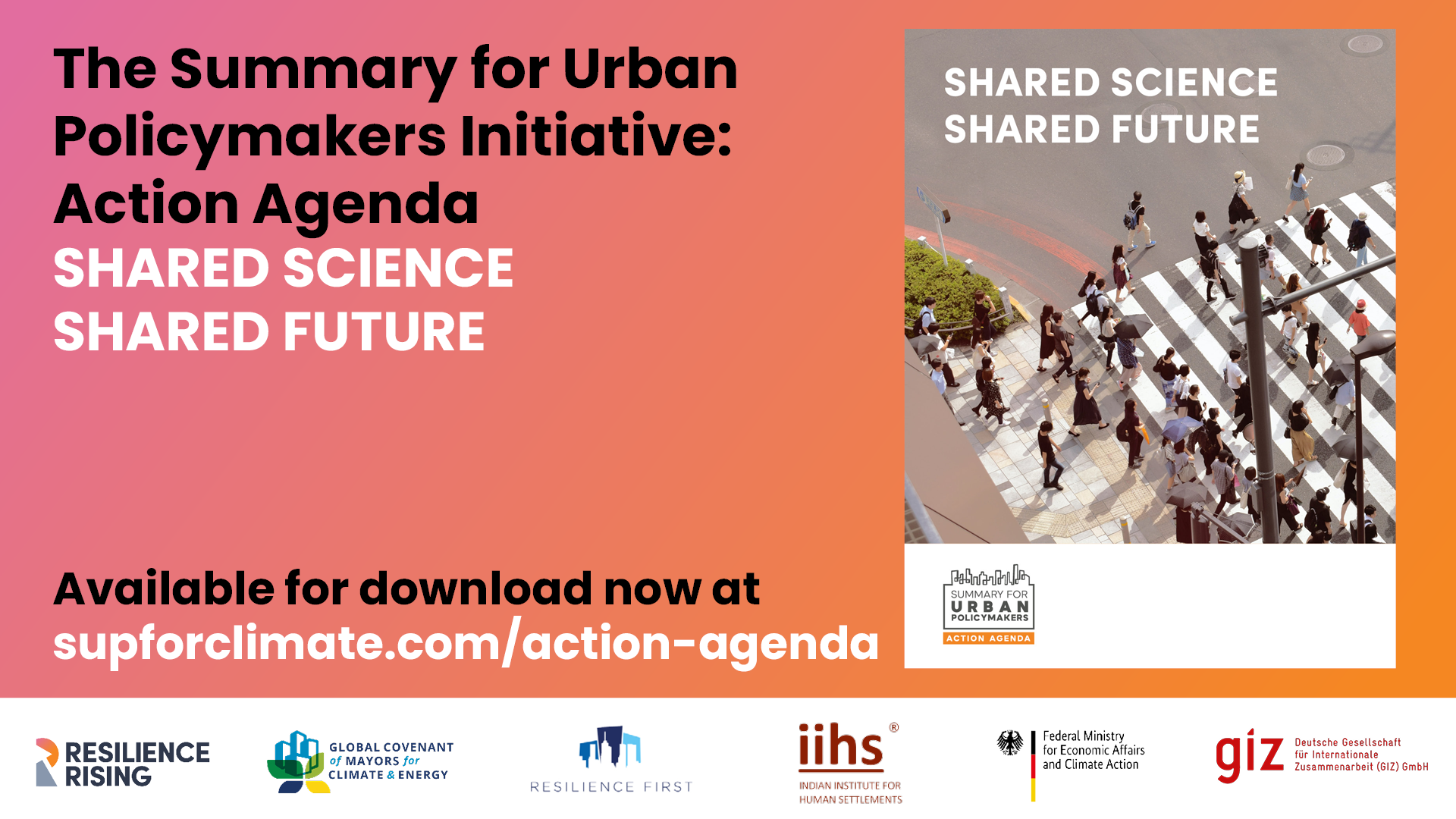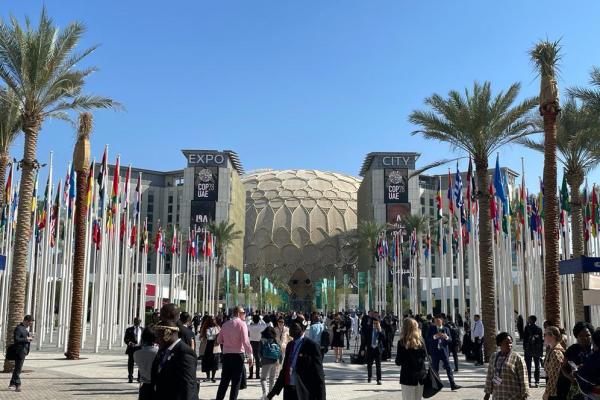Today at COP27, partners leading the Summary for Urban Policymakers (SUP) released a stand-alone solutions-driven follow-on to its three-volume summary series to inform the design and scale of science-based urban climate solutions. The Action Agenda, Shared Science, Shared Future, looks beyond the Intergovernmental Panel on Climate Change’s (IPCC) Sixth Assessment Reports (AR6) by outlining actions needed from city and business leaders to realize ambition and goals set forth by the AR6 IPCC reports.
While grounded in scientific understanding, the Action Agenda explicitly defines opportunities and investments required to incentivize engagement from all relevant stakeholders and seed the ground to co-create solutions to the climate crisis. The Action Agenda looks to mitigation, adaptation, systems transitions, enabling conditions, climate resilient development, and regional perspectives as the central themes for advancement in the climate space. The agenda incorporates input from cities and businesses and is presented by SUP as a separate and distinct product from the three-volume series.
The Summary for Urban Policymaker initiative, and this Action Agenda, are supported by a partnership of the Global Covenant of Mayors for Climate & Energy (GCoM), the Resilience First business network, the Indian Institute for Human Settlements, the German Federal Ministry for Economic Affairs and Climate Action (BMWK) in collaboration with the Deutsche Gesellschaft für Internationale Zusammenarbeit (GIZ), and led by Resilience Rising.
Seth Schultz, CEO, Resilience Rising
“The IPPC’s Sixth Assessment Reports evidenced the catastrophic and irreversible damage that human-induced climate change is bearing upon nature and human life. The reports also made clear, however, that scaling up investments and accelerating immediate action will be essential for survival. The SUP Action Agenda provides a roadmap for co-creation across critical communities of practice and Resilience Rising looks forward to working with all of our partners to move beyond the current competitive ‘transitions’ to the transformation that is only possible when we work together.”
David Wright, Director of Resilience and Chief Engineer, National Grid
“Cities represent 70% of the world’s emissions and their populations are most affected by climate adaptation. This is why we are working in partnership with urban policymakers to connect the science to practical policy advice, driving clean, fair and affordable outcomes for cities and people across the globe.”
Emily Ojoo-Massawa, Climate Resilience Lead Africa, Mott Macdonald
“The methodology used in the development of the Action Agenda epitomised two key principles increasingly being sought and emphasized in the climate change talks, multi-stakeholder consultations and transparency.”
Mohamed Sefiani, Mayor of Chefchaouen, Morocco
“As the nexus between the local and the global–intermediary cities play a unique and vital role in the fight against climate change. It is therefore crucial that intermediary cities serve as innovation hubs for solutions to address the climate crisis. The SUP Action Agenda provides concrete actions that local governments can pursue to enable climate-resilient development, particularly in the Global South.”
Anna Reynolds, Lord Mayor of Hobart, Australia
“Our cities are facing more frequent and severe climate change-induced disasters, and the window of climate action to avoid further loss and damage is rapidly narrowing. This Action Agenda provides an opportunity for city leaders to reassure our citizens that we’re doing our bit towards a safe climate. This Action Agenda is a blueprint for every city that wants to play a positive role in tackling climate change.”
Vera Rodenhoff, Head of Division, German Ministry of Economic Affairs and Climate Action
“The SUP reports make climate science accessible and actionable to urban policymakers– without them, there will be no limiting global warming to 1.5°C. But cities cannot do it alone; for ambitious climate action at city level, we need multi-level governance. SUP is therefore highly relevant to national governments, whose responsibility it is to create the enabling environment that allows cities to successfully address climate change.”
Martyn Link, Executive Director, Resilience First
“The private sector needs to speed up and scale up mitigation and adaptation efforts in order to match the urgency of the climate crisis. The Summary for Urban Policymakers (SUP) series is highly valuable to both cities and businesses in informing future investment decisions; it provides a concise and easily understood view of the latest science on climate change in the IPCC's 6th Assessment cycle reports. Following the SUP series, this Action Agenda shows how businesses and policymakers worldwide can work together and play a vital role in driving the transition towards climate-resilient communities. The private sector should take note of this opportunity and respond with determination.”
Andy Deacon, Co-Managing Director, Global Covenant of Mayors for Climate and Energy
“The Action Agenda puts much needed emphasis on action. When addressing an existential crisis like climate change, data cannot stand on its own without a clear set of expectations and solutions. Fighting the effects of climate change is not a solo undertaking either, and the actions illustrated by SUP in this latest release provide a clear and strong roadmap for subnational governments to play a unique role in the global effort to build a climate-resilient future.”




